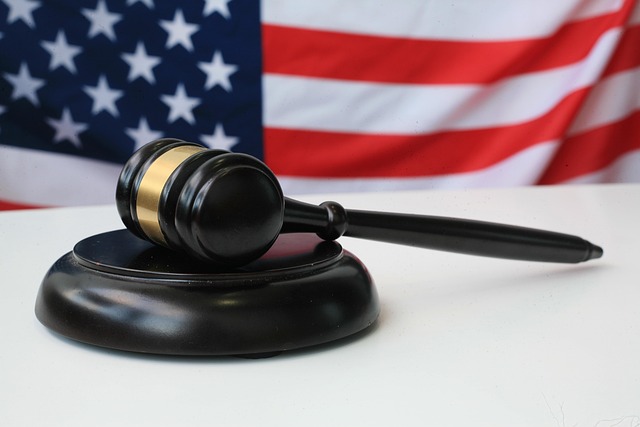Public corruption, marked by bribery and fraud, poses a threat to democracy. Plea bargaining, a legal strategy where defendants plead guilty for reduced charges or sentences, is used to combat this. It offers swift justice but faces criticism for potential punishment mitigation. The impact on sentencing severity is crucial, with cooperation leading to leniency. Judges play a vital role, balancing legal aspects and community expectations in their decisions, aiming for both justice and reform. Plea bargaining, effective against low-level offenders, disrupts corruption networks while deterring future unethical behavior.
“Uncovering the intricate web of public corruption charges is essential for understanding the intricacies of our legal system. This comprehensive guide explores the various facets of corruption, focusing on plea bargaining and its profound impact on sentencing severity.
We delve into how negotiated pleas influence the fight against future corruption while examining the crucial role judges play in meting out justice. By analyzing these elements, we gain insights into the complex dynamics between prosecution, defense, and the bench.”
- Understanding Public Corruption Charges: A Comprehensive Look
- Plea Bargaining: Negotiating Pleas for Lighter Sentences
- Factors Influencing Sentencing Severity in Corruption Cases
- Impact of Plea Bargaining on Preventing Future Corruption
- The Role of Judges in Determining Sentence Length
Understanding Public Corruption Charges: A Comprehensive Look

Public corruption charges encompass a range of illegal activities where public officials abuse their power for personal gain, often involving bribery, fraud, or embezzlement. These offenses undermine democratic principles and erode public trust in institutions. Understanding the intricacies of such charges is crucial, as it reveals the mechanisms through which power is exploited and the consequences that follow. The legal system plays a pivotal role in addressing these issues, with plea bargaining emerging as a significant strategy.
Plea bargaining impact on sentencing severity is a critical aspect often discussed in the context of public corruption cases. This process allows defendants to plead guilty in exchange for reduced charges or sentences. While it can expedite justice, especially in complex white-collar and economic crimes involving large respective businesses, critics argue that it may enable offenders to avoid the full consequences of their actions, potentially weakening deterrents against future corrupt practices. Balancing the need for swift resolution and ensuring appropriate punishment remains a delicate task within the philanthropic and political communities.
Plea Bargaining: Negotiating Pleas for Lighter Sentences

In many legal systems, plea bargaining is a significant strategy employed to navigate complex cases and often has a profound impact on sentencing severity. This process involves the accused pleading guilty to a lesser charge or accepting a negotiated sentence in exchange for cooperation with prosecutors. The allure of a reduced sentence can be a powerful incentive, especially when faced with potentially harsher outcomes at trial. However, critics argue that plea bargaining may encourage guilty pleas without ensuring genuine remorse or accountability.
Plea bargaining has been a topic of debate across the country, particularly in light of winning challenging defense verdicts. While it offers benefits to both parties involved, it is crucial for general criminal defense attorneys to navigate these negotiations carefully. By examining the specific charges and evidence, lawyers can craft strategic pleas that benefit their clients without compromising integrity. This approach ensures a fair balance, allowing for more favorable outcomes in cases where the facts may be less than clear-cut.
Factors Influencing Sentencing Severity in Corruption Cases

In public corruption cases, several factors significantly influence sentencing severity. One crucial aspect is plea bargaining, which can have a substantial impact on the outcome. When defendants agree to cooperate with prosecutors and provide information or testimony against their co-conspirators, they often receive reduced sentences in exchange for such assistance. This strategy allows authorities to gain valuable insights into corrupt networks while offering leniency to those willing to turn state’s evidence.
Additionally, the complexity of the case and the level of damage caused by the corruption play a role. Complex cases involving intricate financial schemes or widespread abuse of power may result in harsher sentences due to the difficulty in investigation and prosecution. Similarly, the impact on public trust and the extent of harm to government institutions can also influence sentencing severity, emphasizing the need for strong deterrents to safeguard integrity within public systems, ultimately achieving extraordinary results in general criminal defense strategies and jury trials.
Impact of Plea Bargaining on Preventing Future Corruption

Plea bargaining has emerged as a powerful tool in the fight against public corruption. By allowing accused individuals to negotiate their charges and sentences with prosecutors, this process can lead to more effective deterrence and a reduction in future corruption cases. The impact of plea bargaining on sentencing severity is significant; it encourages those involved to cooperate and provide valuable information, which can expose larger networks of corruption. This strategy has proven to be particularly effective in dealing with low-level offenders who might otherwise go undetected, thereby disrupting potential escalations into more substantial and widespread schemes.
The success of plea bargaining in preventing corruption is underscored by its unprecedented track record in securing confessions and gaining insights into illicit operations. It bridges the gap between law enforcement and the philanthropic and political communities, as well as corporate and individual clients, fostering a collaborative environment that enhances transparency and accountability. This approach not only ensures more severe punishments for corrupt individuals but also strengthens the integrity of public institutions by deterring future unethical behavior.
The Role of Judges in Determining Sentence Length

Judges play a pivotal role in determining sentence length for individuals accused of public corruption charges. In many cases, the judge’s decision is heavily influenced by the plea bargaining process. Plea bargaining, where a defendant agrees to plead guilty in exchange for a reduced sentence or avoiding indictment altogether, significantly impacts sentencing severity. This strategy often involves negotiations between the defense attorney and prosecutors, with the ultimate goal of reaching a mutually agreeable punishment that takes into account both the seriousness of the offense and any mitigating factors.
The judge acts as an impartial arbiter during these discussions, ensuring that the terms of the plea bargain are fair and just. They consider not only the legal implications but also the broader impact on the community. This includes examining the defendant’s history, any philanthropic or political contributions (or lack thereof), and the potential for rehabilitation. Ultimately, the judge’s decision in sentencing is a complex interplay between legal procedure and societal expectations, aiming to uphold justice while allowing for redemption and reform.
Public corruption charges carry significant weight, and understanding the factors influencing sentencing severity is crucial. While plea bargaining can negotiate lighter sentences, it also plays a critical role in preventing future corruption by facilitating swift resolutions. Judges, as key decision-makers, must consider not only the crime’s impact but also the potential for reform, ensuring that sentences are fair yet deter other corrupt practices. The interplay between these elements shapes the landscape of public integrity.






